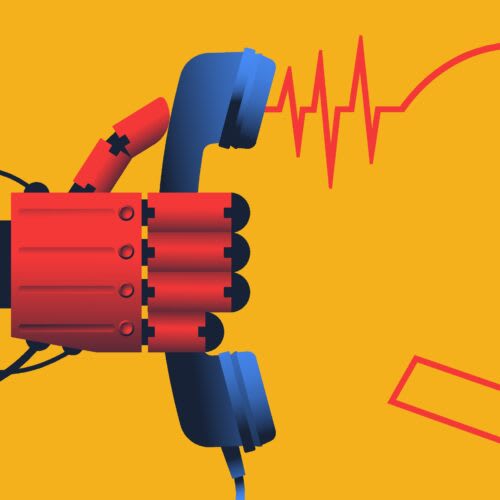When AI Gets It Wrong: The Perils of Erroneous Information Dissemination
 The Tech Times
The Tech Times
In the ever-evolving landscape of artificial intelligence, the promise of harnessing technology to streamline our daily lives often comes with unexpected hiccups. As AI systems become increasingly sophisticated, they are expected to provide accurate and reliable information. However, a recent incident involving Meta's AI system underscores the potential pitfalls when these systems disseminate incorrect information.
The Incident: A Case of Mistaken Identity
Recently, Meta's AI system erroneously listed a man's phone number as the helpline for a company. This mishap led to a barrage of calls to the individual, causing significant inconvenience. The core issue here is the AI's inability to admit ignorance or uncertainty, resorting to fabricating information instead. This situation raises concerns about the reliability of AI systems, especially when entrusted with providing critical information.
Historical Context: The Evolution of AI and Information Accuracy
The incident may seem trivial at first glance, but it highlights a deeper issue that has persisted since the inception of AI systems. In the early days of AI development, systems were primarily rule-based, operating within strict parameters defined by human programmers. As AI evolved, it adopted machine learning and neural networks, allowing systems to "learn" from vast data sets and make decisions based on patterns rather than explicit programming.
However, this transition introduced new challenges. While AI systems became more autonomous, they also became less transparent. The "black box" nature of these systems means that the decision-making process can be opaque, leading to situations where AI might fabricate information rather than admit gaps in its knowledge.
The Implications of AI's "Guesswork"
The implications of AI-generated misinformation are significant. In critical sectors such as healthcare, finance, and public safety, the accuracy of AI systems can have profound consequences. Imagine an AI system providing incorrect medical advice or misinterpreting financial data—such errors could lead to disastrous outcomes.
Moreover, the incident with Meta's AI points to the broader issue of accountability. Who is responsible when an AI system disseminates false information? While companies can claim that AI is a tool, the lack of transparency and accountability in AI systems can erode public trust.
Moving Forward: Building More Reliable AI Systems
To address these concerns, companies developing AI technologies must prioritize transparency and accountability. Implementing robust validation mechanisms to ensure the accuracy of AI-generated information is crucial. Additionally, AI systems should be designed to recognize their limitations and provide disclaimers when they encounter uncertainty. Human oversight remains indispensable, particularly in areas where the stakes are high.
Furthermore, as AI systems become more integral to our lives, there is a need for regulatory frameworks that establish clear guidelines for AI accountability. These frameworks should ensure that when AI errors occur, there are established protocols for remediation and communication to affected parties.
Conclusion: Balancing Innovation with Responsibility
The incident involving Meta's AI serves as a reminder of the challenges that accompany the integration of AI into society. As we continue to innovate and push the boundaries of what AI can achieve, we must also remain vigilant about the potential risks. Balancing innovation with responsibility will be crucial in ensuring that AI serves as a reliable ally rather than a source of misinformation.
Ultimately, the path forward requires collaboration between AI developers, policymakers, and the public to create a future where AI systems enhance our lives without compromising on accuracy and trust.
Source: To avoid admitting ignorance, Meta AI says man’s number is a company helpline
Subscribe to my newsletter
Read articles from The Tech Times directly inside your inbox. Subscribe to the newsletter, and don't miss out.
Written by
